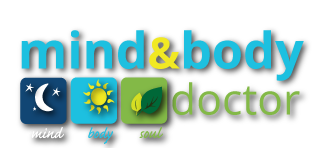Being successful in maintenance of weight loss after surgery requires a drastic change in lifestyle. The majority of my patients exploring the idea of bariatric surgery understand only that they will have to make changes to their eating habits and to start exercising. It is important to realize, however, that long term success requires a change to all aspects of our lives. The way we treat ourselves will reflect greatly on our success down the road.
Integrity is the main ingredient to success. Being honest with yourself will help you in learning about yourself and personal growth. If you sneak food behind your spouses back, it does not so much matter that you are lying to your spouse but rather than you are lying to yourself. If you come in for a follow up visit and fail to share your struggles, you are only cheating yourself the opportunity for guidance and additional support.
Establishing a supportive network is another key ingredient to success and to your happiness. Surround yourself with healthy and successful people and those people who you admire and respect. You may be surprised at how their positive energy rubs off on you.
Many of us are scared to go to a doctor when something does not feel right because we are afraid of what we may find out. Similarly, we put off going to the dentist or for annual checkups that are a necessary part of preventative health. Being proactive in our healthcare is important and necessary to our general wellbeing.
It is also important to ask questions and to understand fully what instructions or information we are given by doctors before we leave their office.
Become aware and tune into your body. Sore feet at the end of the day may mean that you have worked too hard and that your legs and feet need to rest. Soaking your feet in warm water, elevating them or staying off your feet can help to replenish them and help them to heal. The alternative option is to continue to push your feet until you wear them down, resulting in a larger problem. The same goes for the rest of your body. If you are sick, take a sick day. The world will go on without you being there.
Slow down and make sure you have time for fun. Balance in life is important. Setting priorities and goals are essential in success. If you are engaging in any behavior to extreme, even exercise, you are neglecting other important parts of your life. Many of my patients who are successful and maintain a healthy weight long term have even changed their careers because they know that their career for example, in the food industry, was not conducive to healthy decision making.
However far out of surgery you are, you must realize that you do have to sacrifice and make changes if you want to be successful for life. It is a process and may require support or guidance of a friend, supportive family member or professional.
The end results will be worth it!
By Heidi R. Cherwony, Psy.D.
